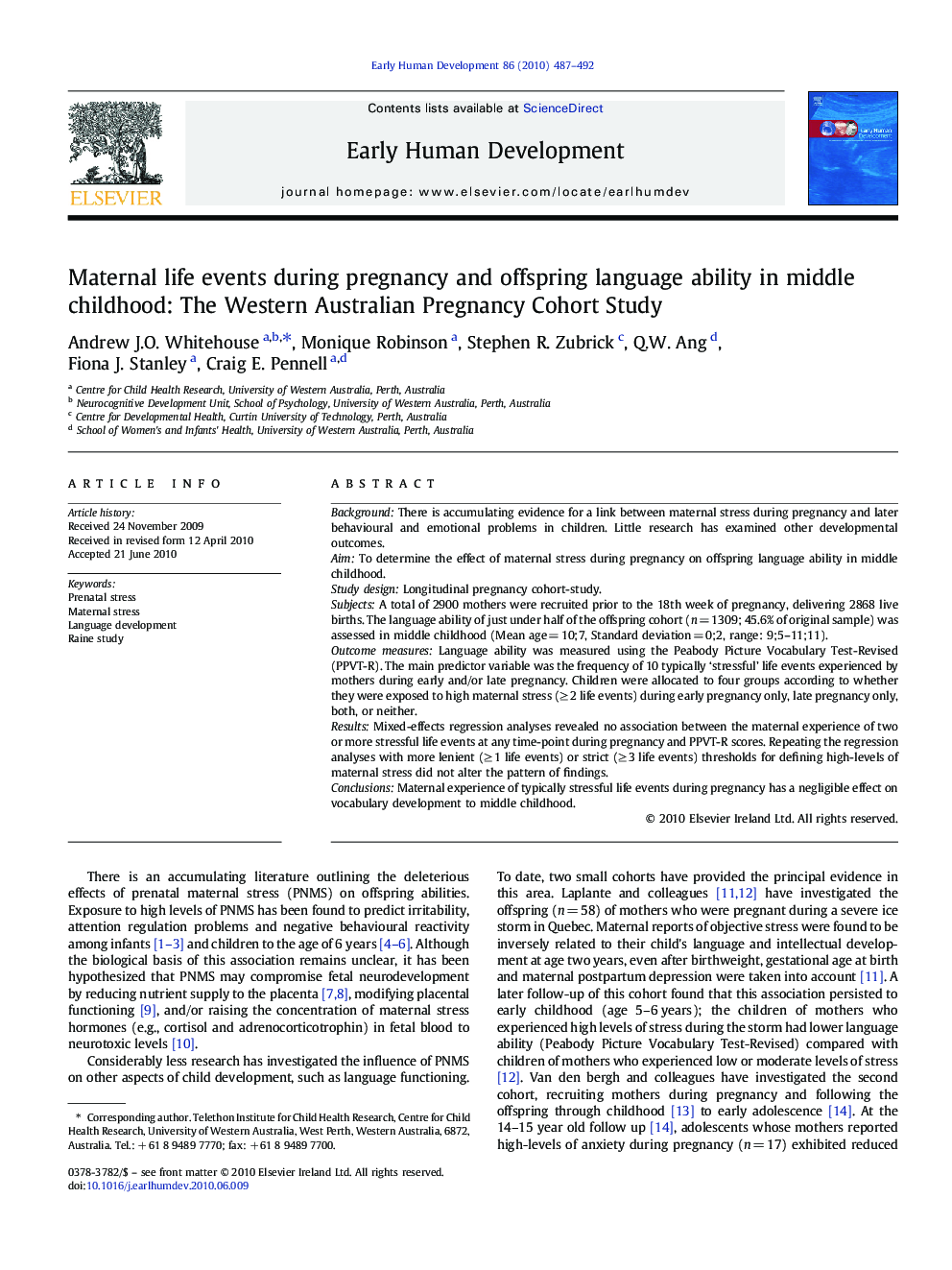| Article ID | Journal | Published Year | Pages | File Type |
|---|---|---|---|---|
| 3917602 | Early Human Development | 2010 | 6 Pages |
BackgroundThere is accumulating evidence for a link between maternal stress during pregnancy and later behavioural and emotional problems in children. Little research has examined other developmental outcomes.AimTo determine the effect of maternal stress during pregnancy on offspring language ability in middle childhood.Study designLongitudinal pregnancy cohort-study.SubjectsA total of 2900 mothers were recruited prior to the 18th week of pregnancy, delivering 2868 live births. The language ability of just under half of the offspring cohort (n = 1309; 45.6% of original sample) was assessed in middle childhood (Mean age = 10;7, Standard deviation = 0;2, range: 9;5–11;11).Outcome measuresLanguage ability was measured using the Peabody Picture Vocabulary Test-Revised (PPVT-R). The main predictor variable was the frequency of 10 typically ‘stressful’ life events experienced by mothers during early and/or late pregnancy. Children were allocated to four groups according to whether they were exposed to high maternal stress (≥ 2 life events) during early pregnancy only, late pregnancy only, both, or neither.ResultsMixed-effects regression analyses revealed no association between the maternal experience of two or more stressful life events at any time-point during pregnancy and PPVT-R scores. Repeating the regression analyses with more lenient (≥ 1 life events) or strict (≥ 3 life events) thresholds for defining high-levels of maternal stress did not alter the pattern of findings.ConclusionsMaternal experience of typically stressful life events during pregnancy has a negligible effect on vocabulary development to middle childhood.
